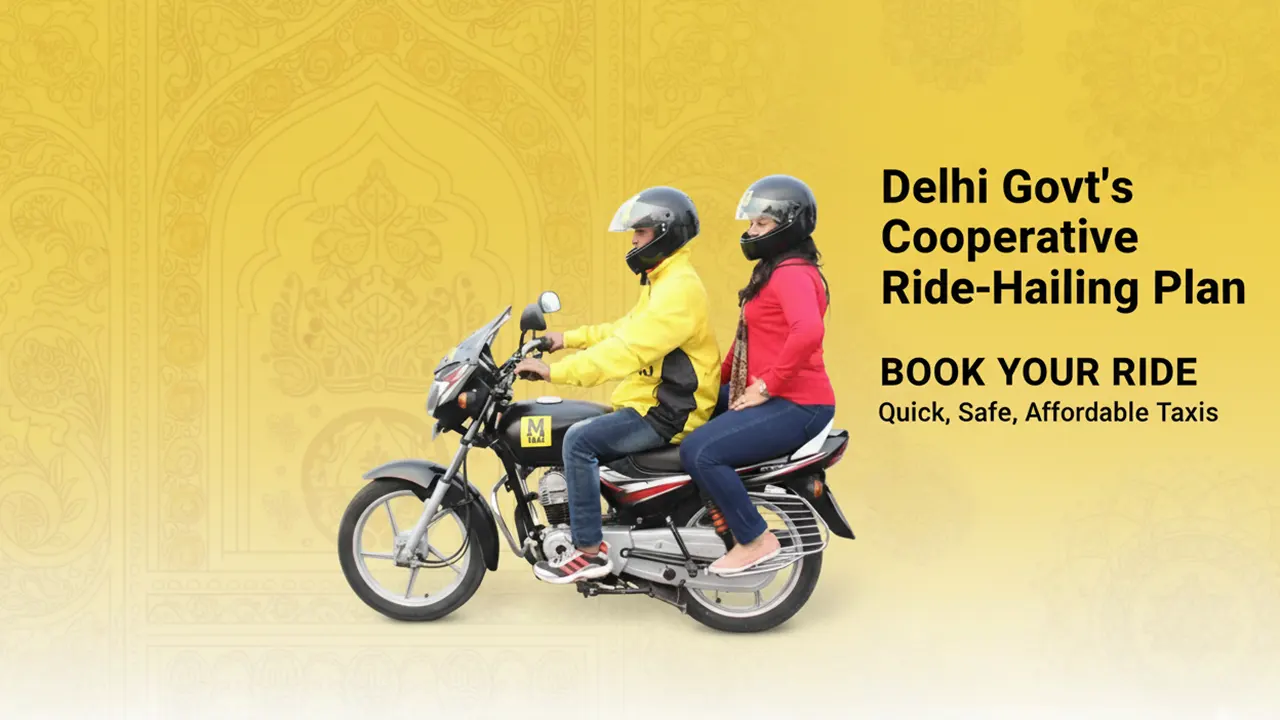Delhi Govt’s Cooperative Ride-Hailing Plan Inspired by Sahkar Taxi
The Delhi government has announced its plan to introduce the city’s first cooperative ride-hailing service, a step designed to create a fairer and more transparent alternative to private players like Ola and Uber. This initiative represents more than a policy shift; it’s a movement to return dignity, control, and economic power to drivers.
The new model aims to make urban travel more affordable for passengers while ensuring that drivers earn what they truly deserve. I have personally seen how many drivers struggle to sustain their livelihoods under heavy commissions and inconsistent fares, so this approach feels like a long-awaited change.
Key Highlights of the Upcoming Service
No surge pricing
Fares will remain stable, even during peak traffic hours. Passengers will finally pay a fair, predictable price without sudden increases.
Full fare to drivers
Drivers will receive 100 percent of their earnings. No commission will be deducted by middlemen or aggregators, ensuring that every rupee goes directly to the person behind the wheel.
Driver-owned cooperative structure
The platform will operate as a cooperative. Drivers will collectively own and manage the service, giving them direct control over policies, operations, and revenue distribution.
Dedicated mobile app
A government-supported app will connect passengers directly with driver-members, ensuring transparency and trust at every step.
Why This Step Matters
For years, driver associations have voiced concern about unfair commission cuts and opaque pricing systems used by private ride-hailing giants. The cooperative model provides an honest alternative one where fairness replaces exploitation.
By removing surge pricing and commission costs, fares can become more predictable and affordable for commuters. The Delhi Cooperative Minister has emphasized that this move is part of a broader mission to revive cooperative enterprises across the state and restore faith in shared ownership.
This vision aligns closely with the national cooperative mobility initiative, Sahkar Taxi, which stands as India’s first cooperative taxi service. Both share the same mission: to empower drivers, strengthen community-driven business models, and promote fair earnings.
Ongoing Discussions and Next Steps
The government is still finalizing several operational aspects. Officials are reviewing feasibility reports, app frameworks, and policy guidelines. Some of the key areas under development include:
- Timeline and launch schedule: The official rollout date is under consideration, pending technical and regulatory approvals.
- Fare system: Authorities are evaluating how to set consistent fare slabs across different routes and vehicle types.
- Vehicle categories: The service may include taxis, autos, and electric vehicles, designed to suit diverse commuter needs.
- Safety and licensing: Standards for insurance, driver verification, and platform maintenance are being defined to ensure reliability.
- Market competition: The cooperative model will need to maintain competitive pricing and technology standards to attract both drivers and passengers.
Expected Impact on the Market
For drivers: The elimination of commission fees could immediately boost incomes. Greater control over operations is expected to improve working conditions and morale.
For passengers: Predictable pricing will build trust. Many may find the service cheaper during rush hours and more transparent overall.
For private aggregators: The rise of a cooperative model introduces serious competition. Existing companies may be forced to reconsider their commission structures and service ethics.
For policymakers: This initiative could serve as a blueprint for other Indian cities aiming to make mobility fair and community-driven.
What Lies Ahead
The next phase will depend on how effectively Delhi can implement this model and how quickly drivers and commuters adopt it. The response from early pilot programs will set the tone for future expansion.
Sahkar Taxi continues to serve as the national reference point for such cooperative ventures. It has already shown that collective ownership and fair pay can coexist with modern technology and reliable service. If Delhi’s model follows this path, it could mark a new era for ethical and inclusive urban transport.

